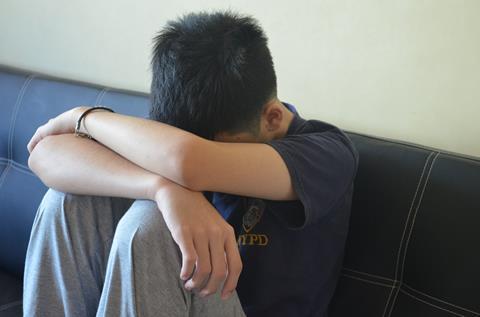More young people than ever are suffering with poor mental health, and services are badly underfunded. This children’s mental health week, Tim Farron MP says our churches need to support, campaign and love

In my 17 years as an MP, the number of young people approaching me for help to get mental health support has risen more than any other issue. There seem to be two main reasons for this. Firstly, mental health is less of a taboo than it was, so more people speak about it, and that’s good. But I also think our society increasingly breeds poor mental health.
This was a big problem before the pandemic but Covid has made things worse, with children deeply affected by disruption to schooling, separation from friends and family for months at a time, and by anxiety and fear transmitted from the adults around them and the dreadful daily news cycles.
A growing concern
Comparing April-October 2021 with the same period pre-pandemic in 2019, the NHS digital referrals service shows a 77 per cent increase in the number of children needing specialist treatment for a severe mental health crisis (including issues such as self-harm and suicidal thoughts). This is heart-breaking, and how many lower level concerns are also building among our young people?
Teachers have reported a massive rise in children struggling with mental health issues since the pandemic started. With schools closed for two sustained periods, concerns were often not picked up until they had become serious. Families have struggled alone with their children’s anxiety, low self-esteem, depression and anger.
If a child broke their leg, they would be seen immediately, but they may wait many months for mental health treatment
This is a much bigger issue than the news lets on, and Christians should surely care. Many of us are parents, grandparents, teachers, youth leaders or others who spend time with children. It’s likely that most of us know someone who has been struggling.
Holistic support
There’s a danger perhaps, because the Bible tells us not to fear and Jesus has promised us his peace, that we fall into the trap of thinking that mental health issues are somehow not ‘Christian’. Maybe we think we just shouldn’t be struggling; that mental health concerns are a sign we are doing something wrong in our faith. So we brush the issues under the carpet and make it harder for young people to admit when they are struggling.
Prayer and spiritual support are vital tools in the battle against mental health concerns, but we should recognise when we also need professional intervention. We need to encourage our young people not to be afraid of mental health.
A biblical precedent
People in the Bible weren’t strangers to anxiety, depression and fear. In 1 Kings 19, after an intense period battling against the king and queen and the prophets of Baal, Elijah tells God he wants to lie down and die. Jesus in the Garden of Gethsemane was in deep mental distress as he faced up to the reality of his coming crucifixion. So we should never be ashamed if we, or those we love, are struggling. As with physical health, there is a mental health continuum from good to poor, and we are all somewhere along it.
Churches already offer a huge range of support services, but let’s ensure that we nurture our children and families. We should help them to know they are loved and accepted, build relationships with them and encourage them to talk about their concerns. Young people’s groups can help them feel they belong when they face pressures at school and from peers.
Continuing to campaign
Caring for the young people in our church communities is vital but how might we also engage politically on this issue? Governments have taken mental health more seriously in recent years, but the sad reality is that the NHS is under immense strain and our mental health services are barely coping.
If a 15-year-old broke their leg on a football field on a Sunday afternoon, they would be seen immediately, but if something less visible breaks in one of our young people, they may wait many months for treatment.
People in the Bible weren’t strangers to anxiety, depression and fear
When I did a survey of families in my constituency last year, we discovered that more than 50 per cent of young people presenting with mental health conditions waited more than three months to receive attention, and 28 per cent waited more than six months. Over half said their experience of that care was poor as a consequence.
How do we put into action our compassion for those who suffer? Why not support a campaign group like Mind, or the eating disorder charity BEAT; become a donor, a volunteer or an advocate? As you pray for those in need, you can work with charities to contact your MP and local NHS trust to lobby for better services, such as waiting times targets to apply to mental health patients just like they do for physical health needs.
Psalm 34:18 tells us that the Lord is close to the broken-hearted and saves those who are crushed in spirit. It is clear that his heart is full of care for those who struggle with their mental health, and we should seek to follow our Father’s lead.





































